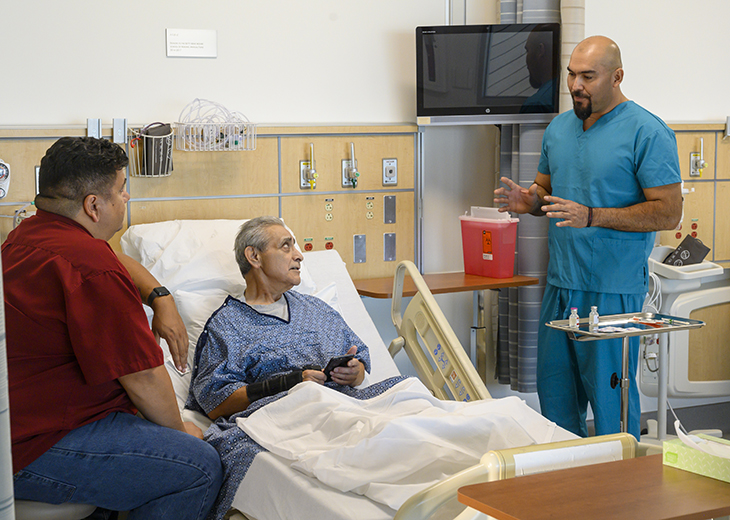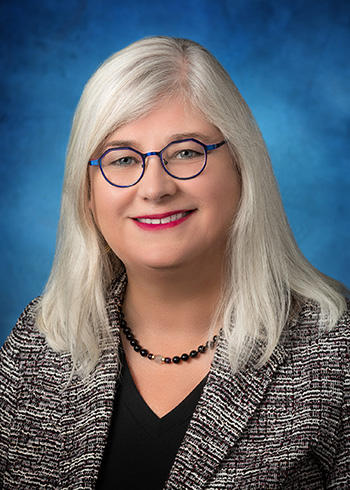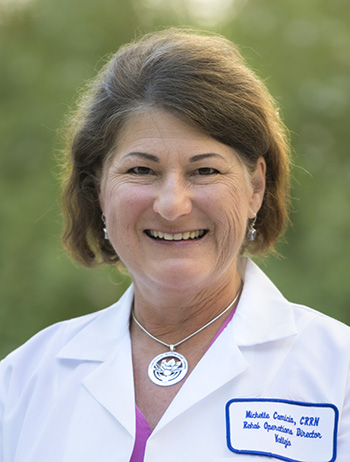Family Caregiving Champion Certificate Program

Course begins
Aug. 16, 2023
Applications open May 1
Course time
3 months online – bi-weekly sections include 90 minutes of live and up to four hours self-paced learning
Education
Continuing education units available for RNs
Applications open May 1 – May 31
Apply now
The KP Scholars Academy and the Family Caregiving Institute at the Betty Irene Moore School of Nursing at UC Davis offer the Family Caregiving Champion Certificate to Kaiser Permanente clinicians.
Why a family caregiving certificate?
- According to AARP, 97% of health care providers say family caregivers play an important role in patient care, but fewer than half of caregivers say they’re prepared for the demands of caring for a family member or friend at home.
- Growing expectation from health systems and funding agencies that family or unpaid caregivers are integrated into care plans.
- Studies show supporting family caregivers in the clinical setting reduces expensive and unnecessary hospitalizations and long-term care.
- Creating caregiving champions contributes to better health outcomes.
Who is the certificate for?
- The Family Caregiving Champion Certificate program is for eligible Kaiser Permanente clinicians who wish to gain advanced skills and knowledge in understanding the role of family caregivers and caregiving in the delivery of quality health care. Solutions based concepts can be immediately applied in different work settings.
- This includes R.N., N.P., C.N.S., M.D., D.O., L.C.S.W. and chaplain roles.
- Applicants must be in good standing and receive approval from their supervisors to participate.
- KP Scholars Academy provides underwriting for the program and selects the final cohort. There are no application or program fees for participants.
- The program is open to non-represented staff only.
Upon completion of the certificate, you will:
- Be positioned to address the needs of a diverse group of family caregivers.
- Strengthen and grow your leadership skills.
- Support Kaiser Permanente in preparing for key initiatives, such as securing Magnet status, that signal Kaiser Permanente’s commitment to providing patients and their families with a higher level of quality care.
The Family Caregiving Champion Certificate is based on an academic graduate education course offered by the Family Caregiving Institute but is tailored to the needs of a working audience. The first KP Scholars Academy Family Caregiving Champion cohort completed the program in spring 2023. This program is the first time the FCI has created organization-specific cohorts. This allows participants to learn together and apply concepts in their work settings.
Participants learn through a mixture of live online lectures, cohort discussions, case study analysis and self-reflection.

The course is led by Heather M. Young, Ph.D., R.N., F.A.A.N., associate director for strategic partnerships for the Family Caregiving Institute and Professor and Dean Emerita at the Betty Irene Moore School of Nursing, along with Michelle Camicia, Ph.D., R.N., F.A.A.N., director of the Kaiser Foundation Rehabilitation Center.
- Bi-weekly, 3-month course
- 90-minute synchronous, online lecture and up to four hours of self-paced online learning each section
- No prerequisite courses required to apply
- Continuing education units provided for RNs
- This is a certificate, not a certification process
The certificate includes 12 modules broken in to six sections covering:
- Section 1: Who are the Family Caregivers – Family Centered Care Overview
- Section 2: Caregiving Theories – Tools to Assess Caregiving
- Section 3: SHARE Approach for Decision Making
- Section 4: Optimizing Interactions and Multicultural Caregiving and Inclusive Support
- Section 5: Ethics – Resources and Skills to Support Caregiving
- Section 6: Policy Issues for Caregivers and the Co-Created Plan of Care
Key dates

- May 1 - May 31, 2023: applications open
- June 30, 2023: 12-person pilot cohort announced, wait list notified
- Three-month online course launches
- Aug. 16, 2023 - online orientation session (5 to 6 p.m. Pacific time)
- Aug. 30, 2023 - instructor-led online course Section 1 (5 to 6:30 p.m. Pacific time)
- Sept. 13, 2023 - instructor-led online course Section 2 (5 to 6:30 p.m. Pacific time)
- Sept. 27, 2023 - instructor-led online course Section 3 (5 to 6:30 p.m. Pacific time)
- Oct. 11, 2023 - instructor-led online course Section 4 (5 to 6:30 p.m. Pacific time)
- Oct. 25, 2023 – instructor-led online course Section 5 (5 to 6:30 p.m. Pacific time)
- Nov. 15, 2023 – instructor-led online course Section 6 (5 to 7:00 p.m. Pacific time)
More about the Family Caregiving Institute
The Family Caregiving Institute at the Betty Irene Moore School of Nursing at UC Davis is dedicated to the well-being of those who care for others. It is comprised of a group of clinicians, educators and researchers striving to support caregivers who are seen as an essential member of a person’s care team.

